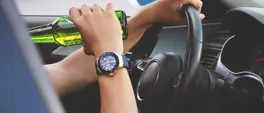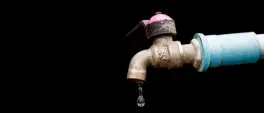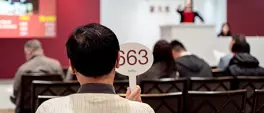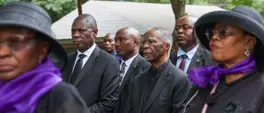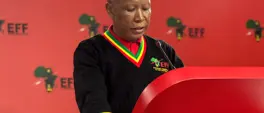Jannik Sinner exonerated for doping. Favouritism? Sports scientist Ross Tucker explains…
Tasleem Gierdien
23 August 2024 | 6:33The world’s top-ranked tennis player Jannik Sinner is at the centre of controversy after the International Tennis Integrity Agency ruled that he wouldn't be suspended after failing two drug tests.
John Maytham speaks to sports scientist Ross Tucker.
The world's top-ranked men's tennis player, Jannik Sinner from Italy, is at the centre of controversy after the International Tennis Integrity Agency (ITIA) ruled that he would not be suspended after testing positive for a prohibited substance twice earlier this year.
Sinner competed at the Madrid Open on 20 April.
By that time, Sinner had won his first grand slam title at the Australian Open in January before embarking on a spectacular, consistent run.
His pre‑tournament interviews in the subsequent days were dominated by his budding rivalry with Carlos Alcaraz, a match-up that many believe will define the next generation of men’s tennis.
However, what only Sinner, his team and the anti-doping authorities knew then was that until the day of his first training session in Madrid, he had been banned from entering the tournament grounds or any other official grounds or courts because of the automatic provisional suspension he had received in the aftermath of twice testing positive for the banned substance clostebol.
However, fans are questioning the silence leading up to this revelation.
Most anti-doping cases end with a player receiving notification of a failed test and then being provisionally suspended until an independent tribunal has ruled on the case at the end of a lengthy, public process.
In Sinner’s case, he was notified of his first positive test on 4 April, just four days after he won the Miami Open.
Sinner immediately filed an urgent application to lift the provisional suspension and his request to do so was granted a day later, meaning the ban was not publicly announced.
Sinner also tested positive again on 17 April and the immediate provisional suspension was lifted on 20 April.
Sinner posted the following statement to his Instagram which noted that he 'knew nothing' about the drug prescribed to him by a physiotherapist.
Some players and fans have publicly taken issue with this case and what they perceive as favouritism, particularly considering the lengthy provisional bans that other players have been subjected to before a resolution was found in their cases.
"I think this one sounds more credible that any of them... this is significantly more likely and actually more plausible... he's going to win 99 out of 100 cases like this, I suspect."
- Ross Tucker
Scroll up to the audio player to listen to the full conversation.
Get the whole picture 💡
Take a look at the topic timeline for all related articles.



